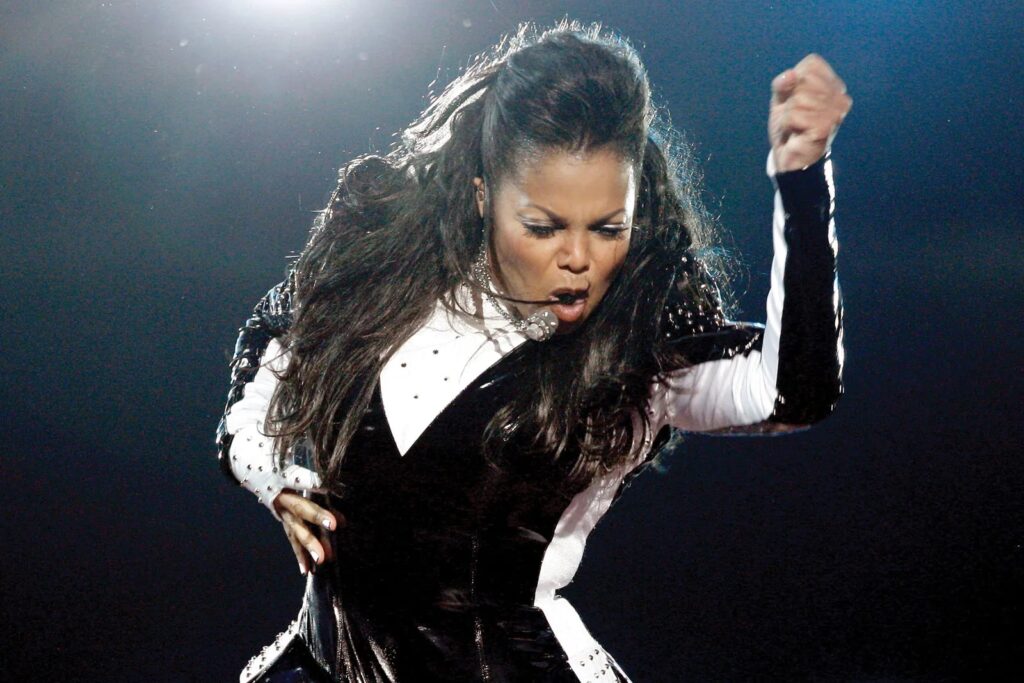
Getty Images
In a recent interview, pop icon Janet Jackson caused a stir when she pointed out that Vice President Kamala Harris “isn’t black,” a statement that echoes long-standing misinformation about Harris. While Jackson’s comment reflects widespread misconceptions that have circulated since Harris entered the national political stage, it also provides an opportunity for conversation about identity, misinformation, and the challenges black women face in public life.
conversationsThis article examines the implications of Jackson’s statement, the roots of misinformation about Harris’s racial identity, and how public figures like Jackson can shape—and reshape—conversations around race, especially in the context of politics.
The origin of the misinformation about Kamala Harris’s identity
From the moment Kamala Harris became a potential candidate for the presidency and later the vice presidency, conspiracy theories about her background have been circulating online. Harris, the child of a Jamaican father and Indian mother in Oakland, California, has long embraced her multi-ethnic heritage. As a proud Black woman, she has spoken about her experiences growing up in a diverse, immigrant family.
However, misinformation campaigns—often based on racism and xenophobia—have sought to discredit Harris’s Black identity. Some of these claims have falsely suggested that her immigrant roots make her “not Black enough” or that she is pretending to be Black for political gain. Such claims are unfounded but have found fertile ground in the digital age, where misinformation spreads quickly.
Janet Jackson’s comments: A missed opportunity or a reflection of public confusion?
blackJanet Jackson is a well-liked person who gained notoriety for her advocacy, philanthropy, and revolutionary music career. However, many people are perplexed by her recent remark that Kamala Harris isn’t black. Was Jackson misguided, or did it represent a larger sense of misunderstanding among people regarding the nuances of racial identity?
Jackson didn’t elaborate, but the incident raises an important point: even people with the best of intentions can spread false information, especially if they lack sufficient knowledge about the subject. Jackson’s remarks unintentionally repeated lies that have already seriously damaged Harris’s reputation among those who are prone to distrust.
Disinformation’s Effect on Black Women in Politics
Being the first Black woman and South Asian woman vice president, Kamala Harris’s career has been unprecedented, but it has also drawn intense criticism. Black women in politics confront particular difficulties. In contrast to their white and male counterparts, they frequently have to explain their identity and qualifications in the face of character attacks and inquiries about their sincerity.
The erroneous storyline pertaining to Harris’s race is but one illustration of the larger social problem of people not believing Black women are credible. Public personalities such as Janet Jackson, even unknowingly, validate these feelings in the minds of some listeners. Thus, the accumulation of these uncertainties may weaken confidence in the leadership of Black women.
What is the stake?

Getty Images
More than just the reputation of one politician or the remarks of one celebrity are at risk here. False knowledge about race has far-reaching effects, especially when it comes to Black identity. It contributes to a history that minimizes Black people’s accomplishments, denies them their own identities, and undermines their status in American society.
There are a lot of stakes for Kamala Harris. She symbolizes millions of individuals who see her as a symbol of advancement in her role as vice president of the United States. She has the ability to uplift people, particularly young women of color who identify with her achievements. However, when misinformation distorts her identity, it puts her chances of receiving proper recognition and appreciation for her achievements at risk.
A personal reflection: Beyond politics
We as a society must do a better job of appreciating and respecting the diversity within blacks. People with different skin colors, cultural backgrounds, and life experiences are part of the African diaspora. The statement made by Janet Jackson serves as a reminder that there should be no static definition of blacks. It is complex, all-encompassing, and deeply intersectional.
Kamala Harris has discussed how her father’s Jamaican ancestry and mother’s South Asian background have influenced her identity as a black woman. If anything else is implied, she loses her agency in determining her own racial identity, which is something that black women in particular have struggled for throughout history.
blackRacial identity is continuously being policed in our day and age, frequently by those who are unaware of its subtleties. But it’s crucial that we pay attention to people who are experiencing these things as we carry on with these discussions. It is our duty to honor Harris’s right to establish her identity as a black woman.
How Janet Jackson Can Make Amends
It’s easy to get swept up in misinformation, especially when it’s so prevalent in the digital space. But public figures have a special responsibility to ensure that the information they share is accurate. While Janet Jackson may not have intended to spread disinformation, her comments provide an opportunity for her to correct the record.
By acknowledging that her comment may have been influenced by false narratives, Jackson can help shift the conversation in a more positive direction. She can use her platform to promote understanding and support for Black women like Harris, who are constantly under attack. In doing so, Jackson could turn this moment into a teachable one—for herself, for her fans, and for the wider public.
Moving Forward: A Call to Action
In this age of social media and fast news, misinformation is more dangerous than ever. But each of us has the power to combat it by becoming savvy consumers of information. Before we share, we must ask ourselves: Is this true? Where did it come from? How might it affect others?
When public figures like Janet Jackson repeat misinformation, it highlights the importance of pausing, reflecting, and ensuring accuracy. For Kamala Harris and all Black women facing similar challenges, it’s essential that we stand firmly against false narratives and celebrate the richness of their identities.
In the end, it’s not just about correcting a celebrity’s comment. It’s about embracing a fuller understanding of who we are—and who we can be—in an increasingly complex world.Harris,
How did you like this article? You can tell us by commenting. Always stay with us for information about the country and the world.




